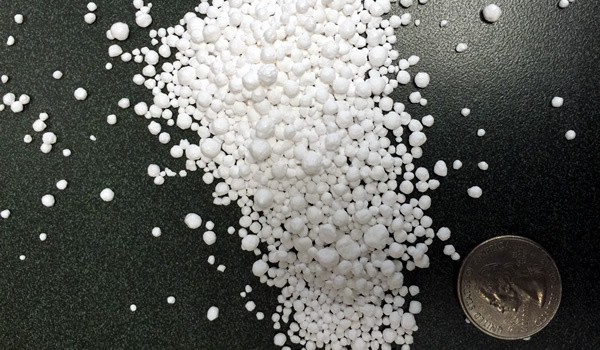Calcium chloride is generally considered safe for human consumption and for environmental control, but there is more to the story. With normal use, you will be perfectly safe. Yet, there are dangers in using Calcium Chloride in high concentrations in medical settings. Calcium chloride in pure form can also cause burns, so you need to practice safe handling when you come in contact with high concentrations of calcium chloride.
Calcium Chloride is Safe for Consumption
Calcium Chloride is used as a food additive to make foods taste saltier, keep color, and to keep some foods firm. You will find it in things like pickles where it helps with all three things, providing a yummy salty flavor while keeping those pickles a healthy green color, and retaining firmness in your cucumbers.
You will also find calcium chloride in some bottled waters in order to add hardness for more of a spring water flavor than a purified water flavor.
Of course, everything has its limits, and while normal consumption is fine, you should expect problems with mega-doses of calcium chloride. Just like you can have too much water, you can overdo the calcium chloride.
You also want to avoid straight calcium chloride. Pure calcium chloride can create burns because it reacts with moisture to create heat. Occasionally, when calcium chloride is given intravenously, it sometimes causes other problems as well. The lesson is to not “self-medicate” with calcium chloride since you normally would not experience harmful levels outside of mega-doses or direct exposure to pure calcium chloride.
Calcium Chloride is Safe for Environmental Control
Our expertise is in calcium chloride used for environmental control. It is used on pavement for de-icing and on dirt roads for dust control. Just like with consumption, when you use the right amount of calcium chloride, you are fine and calcium chloride is considered safe, but if you use too much calcium chloride, you can hurt the environment.
Salting pavement with calcium chloride requires less material than rock salt and it is less harmful to vegetation than rock salt. Unless you have very large concentrations of calcium chloride, your plants will be just fine. An added benefit of calcium chloride is that it is gentler on concrete than standard rock salt.
Calcium chloride also helps keep dust down on dirt roads and construction sites. Dust can pollute the air and make breathing more difficult. Calcium Chloride keeps the dust down and can be a real help in keeping the air clean in dry areas.
You can learn more about how calcium chloride stacks up against other environmentally friendly deicing treatments on our other blog post.

